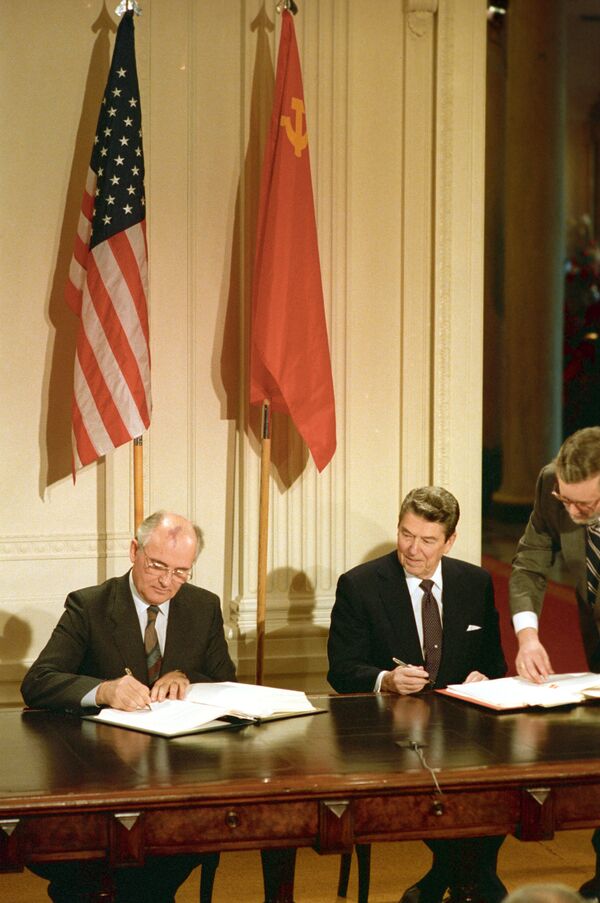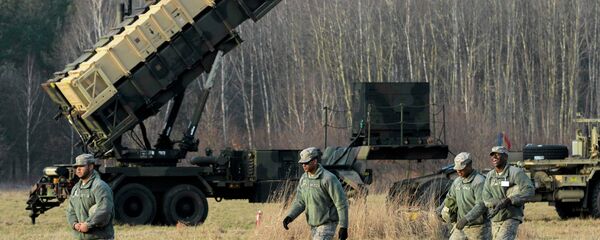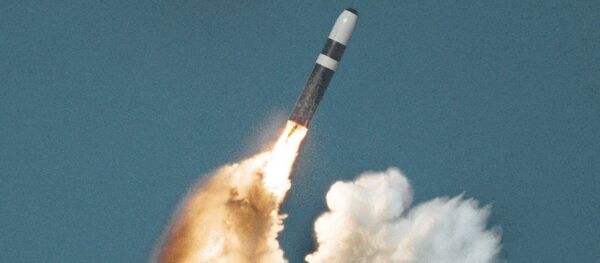The growing speculation that the US could be looking to deploy more nuclear weapons in Europe has increased in recent times following the breakdown in relations between American and Russian leaders, with reports Washington was considering pulling out of a Cold War-era treaty and returning nuclear-capable missiles to Europe.

Moscow has vehemently denied the allegations, while Europeans have also proven to be skeptical, with members of NATO's Nuclear Planning Group dismissing the US claims, saying that Russia's planned refurbishment of weaponry does not violate any treaty.
US Nuclear Weapons in Britain? 'A Very Delicate Act'
However, these fears of a nuclear build-up in Europe have not subsided after British Foreign Secretary Philip Hammond said that he would not rule out placing American nuclear warheads on UK territory, despite noting that it would be "a very delicate act."
UK concerned over ratcheting up tensions with Russia. So US brings nuclear bombers to UK. http://t.co/BFPAi4kMpL pic.twitter.com/i0NtVBvgr5
— CND (@CNDuk) June 11, 2015
Hammond admitted that the recent tensions and build up of NATO forces in Eastern Europe has left Russia feeling "a sense of being surrounded and under attack," and he would not want "to make unnecessary provocations."
Despite not wanting to escalate tensions between Moscow and the West, Hammond said that allowing US nuclear weapons to be stationed in the UK could be used as a "clear signal" to Moscow over what he considers to be "Russian aggression" in relation to the Ukraine crisis.
"That would be a decision that we would make together if that proposition was on the table. We would look at all the pros and the cons and come to a conclusion."
Although Hammond said any suggestions of actually stationing nuclear weapons in the UK were premature, such comments have been seen by many as rather inflammatory towards Russia, with fears it could lead to further building up of arms.
Europe Not Keen on Nuclear Weapons
The increase in rhetoric surrounding nuclear weapons has led many in Europe to raise their concerns over the US-led building up of arms across the continent, with fears Europe could be caught in the middle of a Cold War between Washington and Moscow.
Following NATO's decision to increase forces in Eastern Europe, Moscow announced that it would add 40 intercontinental ballistic missiles (ICBMs) to its strategic forces, leaving many Europeans concerned about what this means for their security and whether this would lead to a continued arms race.
German Foreign Minister Frank-Walter Steinmeier raised concerns of an "accelerating spiral of escalating words and then of actions," describing recent moves as "the old reflexes of the Cold War."
Many NATO member countries remain critical of the mooted plans to deploy nuclear weapons in Europe, with Luxembourg Prime Minister Xavier Bettel saying that such proposals were not the indicative of "an exit strategy."
Meanwhile, German and French representatives have spoken out against proposed NATO retaliation measures against Russia, particularly given the US' unfounded claims that Moscow has violated arms treaties.
Public and Politicians Against Arms Build-Up
Public and political sentiment in many European countries, in particular in Germany, is against the building up of arms on the continent, with demonstrators strongly against the idea of American arms being placed on European soil.
NATO's rearmament in Europe and subsequent Russian plans have led senior German Social Democrats member Rolf Mützenich to say that he is keeping an eye on developments with "a great deal of concern."
While there has been a build-up of weapons by both the West and Russia, there has also been a breakdown in dialogue with the abandonment of Russia's participation in the G8 and the NATO-Russia council, with German Green politician Jürgen Trittin saying that "talking instead of arming" is needed to overcome the ongoing political standoff, and to prevent an escalation of tension between Russia and the West.
"We are experiencing a dynamic that can quickly lead to a real arms race."




